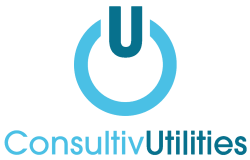Rising energy prices and operational costs mean hospitality businesses across the UK—restaurants, pubs, hotels, cafés—must take a proactive approach to energy management. Whether it’s summer or winter, efficient energy use is essential for remaining profitable and sustainable.
With that in mind, here are some simple steps you can take in your hospitality business to ensure you’re getting the most out of your energy expenditure/spend.
Heating servicing and control are key
Heating and hot water account for over 40% of the average commercial building’s energy use in the UK. In summer cooling systems can also add significantly to bills.
However, there are steps that can be taken to ensure heating and cooling systems are as efficient as possible:
- Service boilers, air conditioning units, and pipework regularly to ensure peak efficiency.
- Use thermostats to automatically adjust temperature settings based on business hours or seasonal changes.
- Make the most of zoned temperature control – especially in larger venues like hotels or arenas, to avoid heating or cooling unused areas.
Embrace smart energy technology
Smart technologies offer more control and visibility over energy use, helping to identify waste and reduce costs.
We encourage hospitality businesses to take advantage of the below smart tech:
- Smart meters provide real-time insights and accurate billing.
- Compensators that adjust heating based on outdoor weather.
- Timers and sensors for lighting, heating, and kitchen equipment to ensure systems only run when needed.
- Occupancy sensors which help to ensure that lights are only in use when spaces are occupied.
Optimise ventilation and airflow
Good ventilation is essential for comfort, safety, and compliance – but it doesn’t have to mean high energy bills.
Best practices for optimising ventilation and airflow include regularly cleaning and maintaining ventilation and extraction systems. Installing heat recovery ventilation systems—which retain warmth during colder months while circulating fresh air—and naturally ventilating spaces where possible are also effective strategies. Be sure to open windows and doors periodically.
Switch to more efficient lighting
In some hospitality spaces, lighting plays an important role in aesthetics and ambiance of a venue – but you don’t have to compromise energy efficiency for looks!
Some simple improvements include:
- Switching to LED lighting, which can use up to 80% less energy and last longer.
- Using motion sensors or daylight sensors in areas like toilets, corridors, and back-of-house spaces.
- Setting clear staff guidelines for switching off lights when areas are not in use and on day close checklists.
Build a culture of energy efficiency
Energy efficiency works best when the whole team is on board. Creating an internal culture that values energy efficiency and sustainability can make a lasting difference.
Providing training on shutting down equipment properly or spotting energy waste is an inclusive way to get front of house staff on board with energy savings efforts.
Another great way of building awareness around energy savings is to conduct an energy audit – giving you a clear idea where you can save money and energy in the long term and how you can implement these changes as a team to achieve your sustainability goals.
Need expert help?
As energy bills continue to rise, it’s important to seek out support to help manage your businesses energy spending. At Consultiv Utilities, we help hospitality businesses find tailored energy deals that work with their unique requirements.
Get in touch and find out how we can support your business.
Categories:

